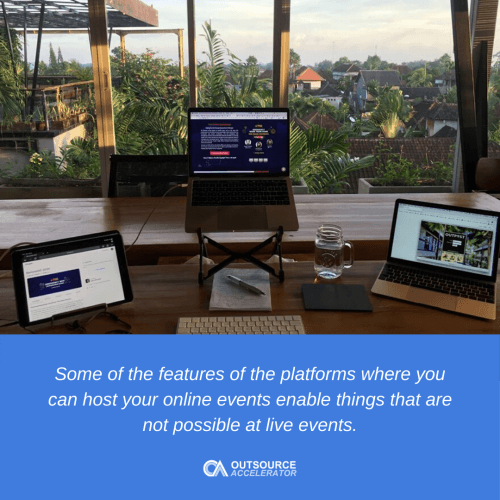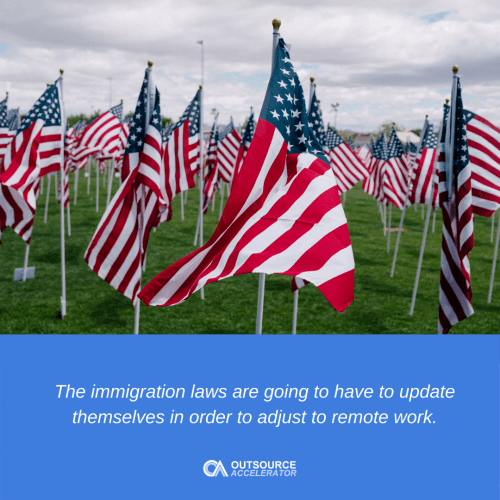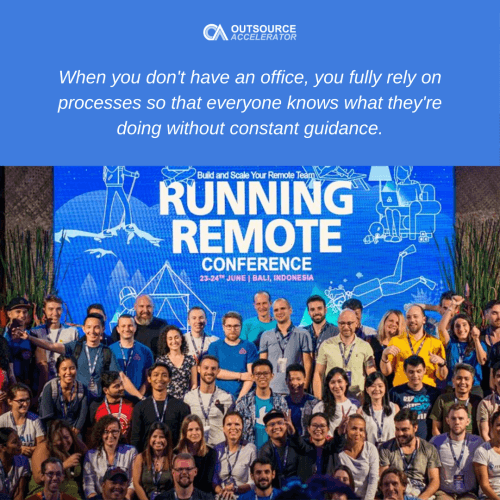Egor Borushko of Running Remote – Is remote work the future of work?

About Running Remote
Derek Gallimore interviews Egor Borushko, co-founder of Running Remote conferences. Running Remote brings together remote company founders and businesses to learn about managing remote teams and scaling their operations outside an office.
Egor talks about the history of the conference and having remote teams. They share insights on how a distributed team works outside an office, its pros and cons, and how businesses can learn through expert insights on remote team management.
Egor Borushko is remotely running a seven-figure global business while living and enjoying the island of Bali, Indonesia. As remote work becomes a more common concept, Egor shares how his company started, how the pandemic has forced the company to come up with an online event strategy, as well as his thoughts on the future of work.
How Egor ended up founding Running Remote
The concept of Running Remote started in a company retreat held in Boracay, Philippines, when Egor was still working at Time Doctor. Time Doctor is a productivity analytics tool for remote teams, and the company itself is a 100-person, fully distributed remote team.
He said that the team discussed many interesting topics, and even “silly” ones like “How do we manage if somebody wants to speak in the meeting?” “Should we use emojis to kind of show the emotion behind this plain text that we see in Slack?,” and other things that he has never heard, yet are so important for remote work to be successful. Egor then came up with an idea to bring other founders of remote companies to see how they are solving these challenges, mentioned it to his employer, and started making events out of it.
The now-Running Remote’s first conference’s goal is to fly in only 20 founders of “serious companies” to fly into Bali, where the conference was held. A total of 216 people showed up at the event.

Live events and remote conferencing in the time of COVID-19
Egor said they “never believed in virtual conferences and such.” If you want to join the conference, get off the computer or your office setup, fly in, talk to people, and make real connections. However, due to the lockdowns caused by the COVID-19 pandemic, Running Remote had to come up with an online event strategy in order for the company to survive.
Some of the features of the platforms where you can host your online events enable things that are not possible at live events. Egor became drawn to that, and realized that “this is actually not not only a way to survive, but it’s a muscle that we can grow and pump and actually sustain the community online, because it became much more than the live stream.”
Egor noted that in the long run, Running Remote is looking to turn their live conference into a hybrid conference. For now, they’re doing free events because they realized that “a lot of companies right now are going through stress due to remote work challenges,” and they didn’t want to monetize that. It’s been “a very exciting few times” for Running Remote, as they had just organized two virtual conferences so far, and they have three more conferences planned before the end of the year, all online.
The future of remote work
Would there be a complete banishment of offices 20 of 40 years from now?
Egor thinks that a hybrid model will be applied predominantly through organizations. There will still be offices and headquarters, but the possibility for employees to work from home is “very, very big.” Remote working will make “a lot of people happier,” but having some sort of central place where you can go to and speak to real people is a “growing importance for fully distributed companies.”

Egor admits to missing interacting with “real people,” but emphasizes that the hybrid model is what we’re going to see more of in 20 years time. Since we don’t know where technology is going, he talked about virtual reality (VR) companies that are building incredible technology for people to have those virtual meetings, but kind of take it to the next level than just the Skype and Zoom that we use every day.
Possible changes in immigration laws
Since remote work allows employees to work anywhere in the world, border controls and movement restrictions may come into play. In a geopolitical aspect, Egor said that the immigration laws are going to have to update themselves in order to adjust to remote work. He cited Estonia, which he said has actually succeeded in rolling out a digital nomad visa. He said since Estonia rolled out the visa, the country instantly saw quite a big influx of professionals who don’t need a desk to sit on, which created a win-win situation, since they actually cost the economy less to sustain.
For those who’d like to get in touch with Egor, you may reach out via email at egor@runningremote.com
Listen to more podcast episodes here:
- Eileen Borromeo of Payoneer – Effective people management amid COVID-19
- Introduction to The Outsource Accelerator
- Eileen Ramos – Learning Basic Tagalog with Eileen Ramos
References:
Email address: egor@runningremote.com
LinkedIn: Egor Borushko








 Independent
Independent




